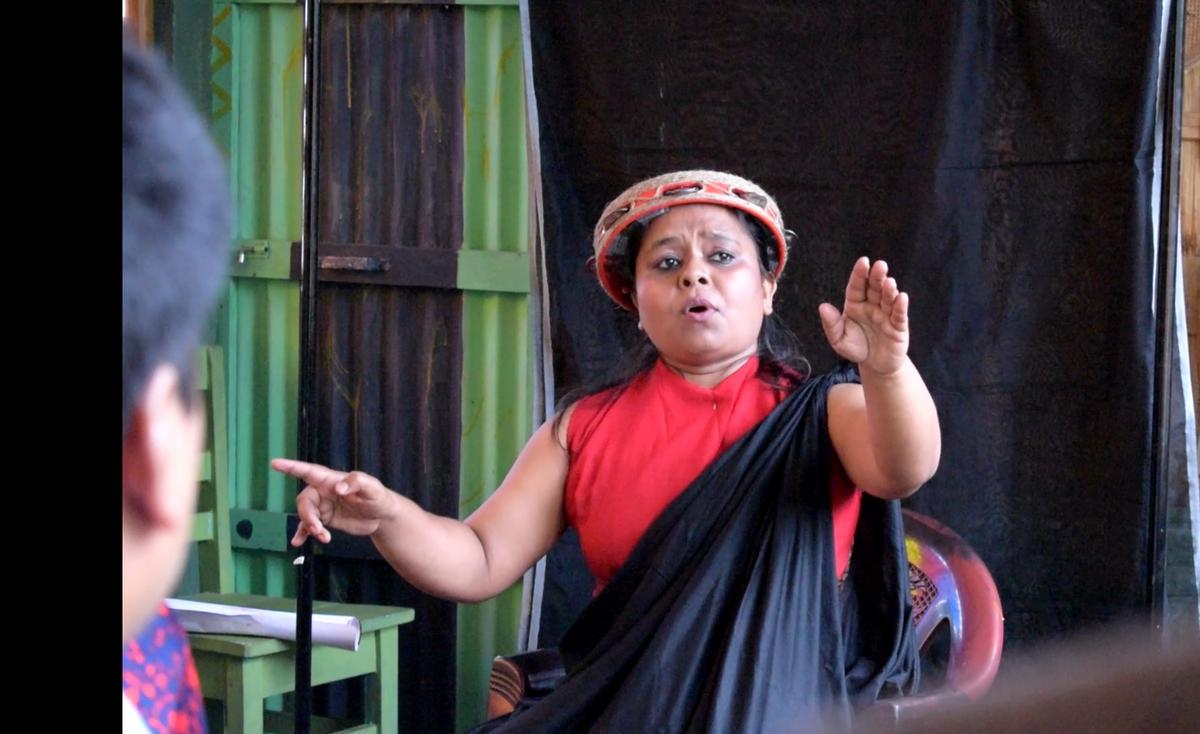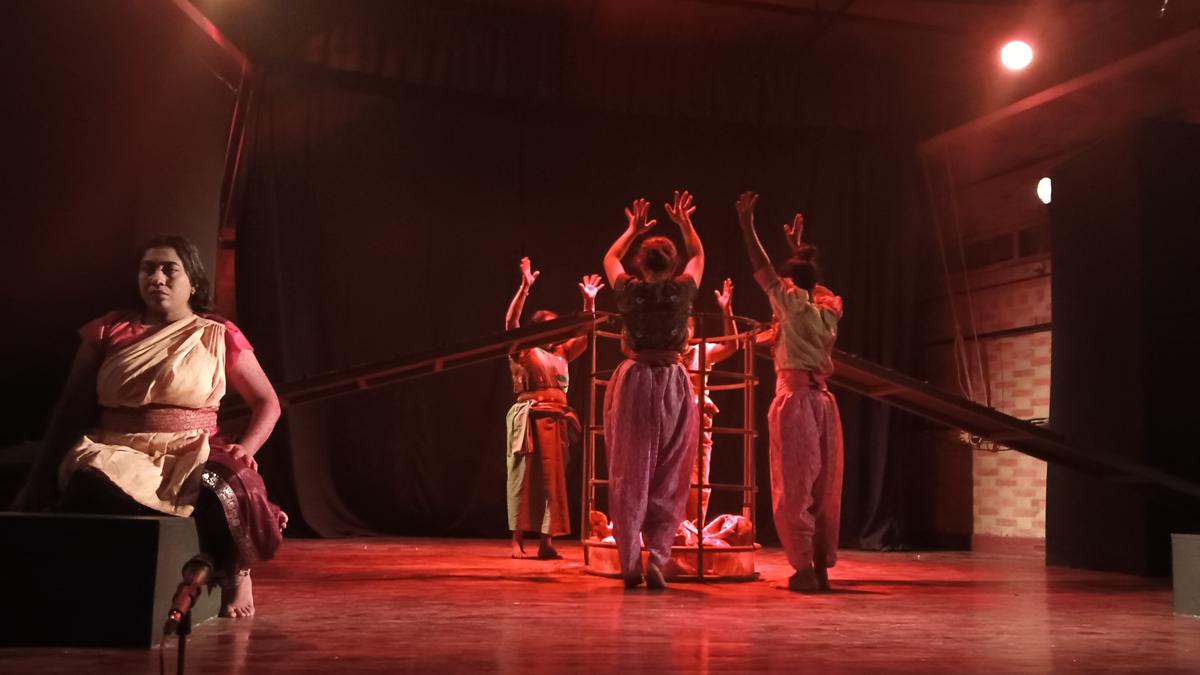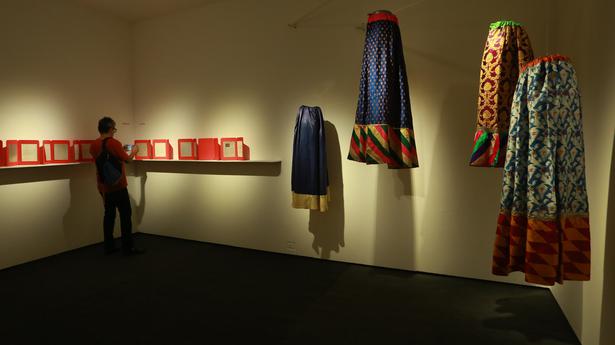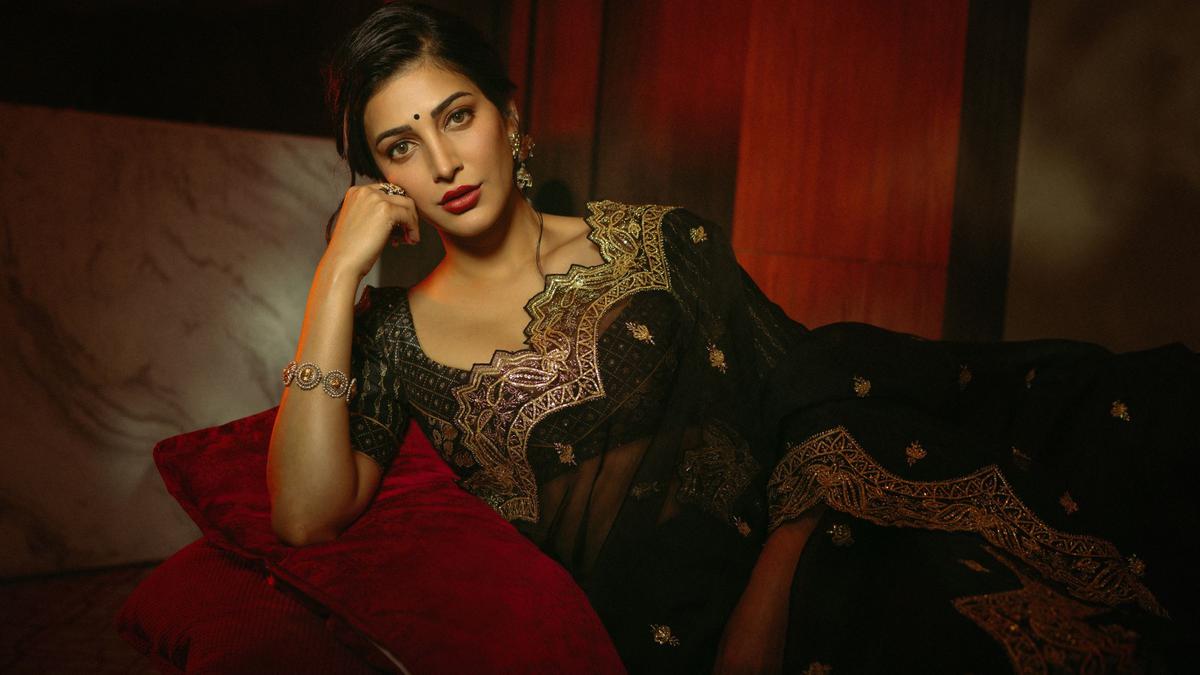A day in the museum turns out to be an unforgettable journey across time and regions for six youngsters who encounter several forgotten women warriors and social reformers who inspire them to question and raise their voice against injustice. Kuyili, an Arunathathiyar warrior from the 18th century, who helped queen Velu Nachiyar win a war against the British, reminds them that at 21, she was the commander-in-chief of the army and had sacrificed her life to win a crucial battle for the queen.
Kuyili is one of the many silenced voices which will be heard in Sreeja Arangottukara’s play, Museum of Silence, the inaugural play of the three-day Women’s Theatre Festival that begins in the Thiruvananthapuram on December 23. Directed by Sreeja’s daughter Savithri M, the play is a collage of music, dance and dialogues.
Play time
December 23
The festival will be flagged off from Manaveeyam Veedhi at 9.30 am. Adolescent Girls’ Group from Valiyathura stages a street play Thee Kadal at Vyloppilly Samskriti Bhavan.
Museum of Silence (6pm); Diana (7.30pm) Pookathirikkan enikk avathile (7.30pm), SHE (8.20pm) and Kaadu (8.45pm).
December 24
Assamese play Almost Antigone (6pm); Sologamy (7pm), Sike Cycle and Sike (7.30pm) and Ashima (8pm)
December 25
Andhika (6pm); Kannada play Giribale (7.15pm); Ela Ela Lemma Sabthani (8.20pm)
The green premises of Vyloppilly Samskriti Bhavan in Thiruvananthapuram will turn into a mega stage as the curtain goes up on the second Women’s Theatre Festival in Kerala. Every evening, plays, ranging from 15 to 90 minutes, will be held at different stages one after the other. The three-day festival showcases 14 plays directed by women, including one each from Assam ( Almost Antigone) and Karnataka ( Giribale).
Playwright and co-founder of Thiruvananthapuram-based Nireeksha Women’s Theatre, E Rajarajeswari says, “Some plays revolve around gender issues and problems faced by women, but most of the plays discuss current events, State oppression, misuse of authority, political choices and so on from a woman’s perspective.”
Giribale, a play in Kannada, which will be staged in Thiruvananthapuram as part of the Women’s Theatre Festival, is based on a story by Vaidehi
| Photo Credit:
Special arrangement
Held 24 years after the first edition, which was organised under the auspices of Kerala Sangeetha Nataka Akademi, this fete is being conducted by Nireeksha in association with the Union Ministry of culture, Kerala State Department of Cultural Affairs, Vyloppilly Samskriti Bhavan and Kudumbasree (a poverty eradication and women empowerment programme of the State government).
Members of Kudumbasree’s theatre troupe, Rangasree, will participate in a three-day workshop. Rangasree, which exists in all 14 districts of Kerala, conducts street plays as part of awareness campaigns of the State government. “The workshop aims at upgrading their theatre skills and giving them a new direction,” says Soya Thomas, a gender consultant and one of the members of the organising committee of the fete. “Their interaction with theatre professionals will help them familiarise themselves with the latest in theatre techniques, lighting, scripting etc.”
Theatre workshops, poetry sessions, concerts and a seminar will be held on the sidelines of the festival. While all the plays are open to the public, participants for the workshops will have to pay a registration fee.

A scene from Almost Antigone
| Photo Credit:
Special arrangement
“A festival like this will be a boost for women’s theatre, which is still not all that visible even in Kerala,” says Sudhi Devayani, one of the organisers of the fete and co-founder of Nireeksha, which is celebrating its 23rd anniversary.
She points out that though there was no publicity as such to select the plays for the festival, 14 women directors came forward with their plays.
“The practitioners come from different walks of life and belong to different age groups. It is their passion for theatre that brings them together. A platform for them is imperative because we want to highlight the works of women who work behind the scene as technicians and stage designers.” Sudhi maintains that there is a difference in the way women perceive, present and plan a theme.
According to her, the existing technology for presenting a play is not always woman-friendly in Kerala. The aim is to upgrade the technical skills of women practitioners in theatre and help them find innovative ways to overcome existing hurdles.
Nireeksha’s new production Andhika will be premiered on the last day. Written by Rajarajeswari and directed by Sudhi, it turns the limelight on Gandhari, the mother of the Kauravas in the epic Mahabharatha.
Travel arrangements
For the convenience of spectators and participants, Transport Minister Antony Raju has made arrangements for a Kerala State Road Transport Corporation bus service from Vyloppilly Samskriti Bhavan at 10.30 pm, which will go via Thampanoor to East Fort.
“Why did Gandhari turn a blind eye to the misdeeds of her sons? She chose to go along with the patriarchal set-up in the court. Andhika examines Gandhari’s decisions from a contemporary perspective when her decisions are questioned by her maids,” narrates Sudhi.
As Sushma Vijaylakshmi, one of the organisers points out, the themes presented question patriarchal norms and narrate stories of empowerment. “The intention of the festival is to create a much-needed space for women in theatre, not only as directors and actors but also for those working behind the scenes.”





.jpg)
